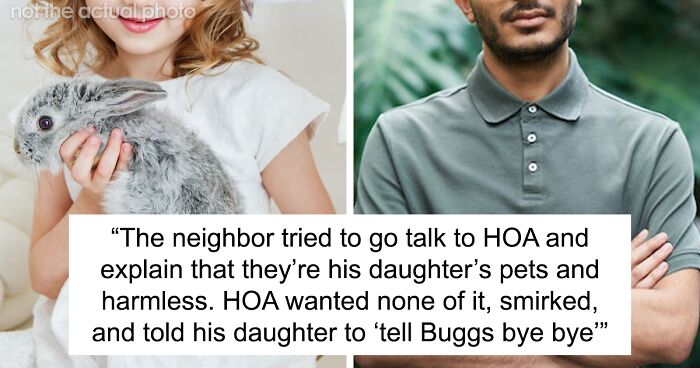
HOA Forces This Family To Get Rid Of Their Bunnies, So They Start A “Bunnypocalypse” Before Moving
Ask any pet owner, and they’ll tell you that their little animals are members of the family. So when one homeowners association representative suddenly decided that a young girl’s pet bunnies needed to go, her father took that personally.
Below, you’ll find the full story that one neighbor recently shared on Reddit, detailing how this father got pet-ty revenge on the power-hungry HOA member, as well as some of the replies amused readers left.
One power-hungry HOA member suddenly decided to target a young girl’s pet bunnies
Image credits: Anastasiya Gepp (not the actual photo)
So her father decided to get revenge in the most brilliant way
Image credits: fauxels (not the actual photo)
Image credits: Karolina Grabowska (not the actual photo)
Image credits: Felix Müller (not the actual photo)
Image credits: shuckaladon
Later, the neighbor responded to some comments and provided additional information on the situation
Image credits: Tima Miroshnichenko (not the actual photo)
Behind dogs and cats, bunnies are the third most popular household pets in the United States
As far as we understand, this family was simply minding their own business with these bunnies. The OP explained that they had never been left outside or hurt anyone, so it’s likely that these little furballs had even less of an impact on the neighborhood than dogs and cats. Residents who walk their dogs need to regularly pick up after them, and there’s a greater risk of dogs injuring others than bunnies. Plus, many cat owners allow their fur babies to roam freely during the days, doing their business wherever they please and interacting with neighbors. Although bunnies are one of the most recently domesticated animals, according to the University of Oxford, they quickly became a popular pet.
In the United States, rabbits are the third most popular pet, just behind dogs and cats. There are over 3 million pet bunnies in the US, and in the United Kingdom, they’re three times as popular, with about 3% of households owning at least one bunny. These adorable little balls of fluff make excellent pets, as they’re lower maintenance than dogs, they’re intelligent, they don’t take up much space, and they can be very loving. According to Hastings Veterinary Hospital, a few more reasons why rabbits can make great pets are because they’re quiet, full of character and easy to train. If you live in an apartment building where you’re concerned about a barking dog upsetting neighbors, you can rest assured knowing that a pet bunny won’t create the same problem.
Image credits: Tima Miroshnichenko (not the actual photo)
They can make wonderful companions and are the perfect addition to many families
As far as how easily rabbits can be trained, Hastings Veterinary Hospital writes, “Not only are rabbits fairly quick to learn to use a litter-box, they’re also fully capable of doing tricks, running mazes, and completing obstacle courses. There’s no special method of training that’s specific to rabbits; you can actually train them with most of the same principles you’d use to train a dog. Typically, all it takes is a few minutes of training a day, along with some positive reinforcement.” Rabbits are also relatively clean pets. They groom themselves and use a litter box for their business. Unless you unleash them onto your garden that’s full of enticing flowers and bushes, they’re not likely to make a mess!
When it comes to what sort of rules HOAs, or Homeowners Associations, can require their residents to follow, Bundren Law explains that they are allowed to have limitations on pets. “When an HOA’s Covenants, Conditions, and Restrictions (CC&Rs) limit pet ownership, though, dogs are typically the most restricted after exotic pets that you’d have a hard time finding anywhere but a farm or zoo,” they note on their site. “CC&Rs can limit the total number of animals that can be owned, ban specific dog breeds, place a weight limit on dogs that are allowed in the community, or determine that dogs aren’t welcome in the community at all.” However, HOAs should not be able to force you to remove a pet, especially one you moved in with and have had while living there already. The only circumstances where HOAs should be allowed to remove a pet are when a resident chooses to break the rules they agreed to upon moving in and when a biting incident occurs with a pet.
Image credits: Gabriella (not the actual photo)
HOAs can set restrictions on pets, but they must be reasonable
If HOA rules manage to change while you’re already living in a neighborhood, your pets should be protected. “If you already owned a pet that would now be in violation of the new rules, however, chances are it would be ‘grandfathered’ in,” Bundren Law notes. “This means that despite the new rules, you are allowed to keep your pet because it wasn’t prohibited at the time you acquired it. The rule is unlikely to be retroactively enforced.” HOAs also have the power to enforce rules against exotic or illegal animals, understandably, but bunnies are incredibly common pets. Limiting the amount of rabbits a family can have is one thing, but it is unreasonable for them to police whether or not a family can have bunnies at all, especially when they are well maintained and not running loose in the neighborhood.
We would love to hear your thoughts on this story in the comments below, pandas. Do you think bringing in wild rabbits was the appropriate way to deal with this power-hungry HOA member? Feel free to share any personal stories about HOAs who tried to enforce unreasonable rules in your own community, and then if you’re interested in checking out a Bored Panda article discussing why rabbits can be the perfect household pets, despite sometimes being naughty, look no further than right here!
Amused readers enjoyed the story of petty revenge and called out the HOA member for his ignorant views on bunnies
As a Brit, I do enjoy reading about the chaos sown by HOA's and the revenge against them. I don't know how you folks over the pond put with them though, I certainly wouldn't.
I nor anyone that I have known lives in an hoa.
Load More Replies...One of those commenters is absolutely right, domesticated rabbits and wild rabbits are completely different. So never release your domesticated rabbit into the wild; IT WILL DIE. And don't bring wild rabbits into your home, it's not going to be a cute pet. And if you see a friendly "wild" rabbit with a different coat color, it's likely to have been released or escaped. Help it survive, catch it and bring it to a shelter (or ask around if anyone is missing a rabbit).
True. But they will breed with each other. My childhood bunny ran away and there were black/white/spotted wild bunnies all over the hill after that (BTW not endorsing this!)
Load More Replies...Hahahahaha someone suggested a fence to keep the bunnies out hahahahaha
The fence will only work if there is food the bunnies like outside the fence. We fence our veggie gardens, but the bunnies don't bother digging their way in, because our 'lawn' is all native ground cover plants and wildflowers.
Load More Replies...As a Brit, I do enjoy reading about the chaos sown by HOA's and the revenge against them. I don't know how you folks over the pond put with them though, I certainly wouldn't.
I nor anyone that I have known lives in an hoa.
Load More Replies...One of those commenters is absolutely right, domesticated rabbits and wild rabbits are completely different. So never release your domesticated rabbit into the wild; IT WILL DIE. And don't bring wild rabbits into your home, it's not going to be a cute pet. And if you see a friendly "wild" rabbit with a different coat color, it's likely to have been released or escaped. Help it survive, catch it and bring it to a shelter (or ask around if anyone is missing a rabbit).
True. But they will breed with each other. My childhood bunny ran away and there were black/white/spotted wild bunnies all over the hill after that (BTW not endorsing this!)
Load More Replies...Hahahahaha someone suggested a fence to keep the bunnies out hahahahaha
The fence will only work if there is food the bunnies like outside the fence. We fence our veggie gardens, but the bunnies don't bother digging their way in, because our 'lawn' is all native ground cover plants and wildflowers.
Load More Replies...
 Dark Mode
Dark Mode 

 No fees, cancel anytime
No fees, cancel anytime 






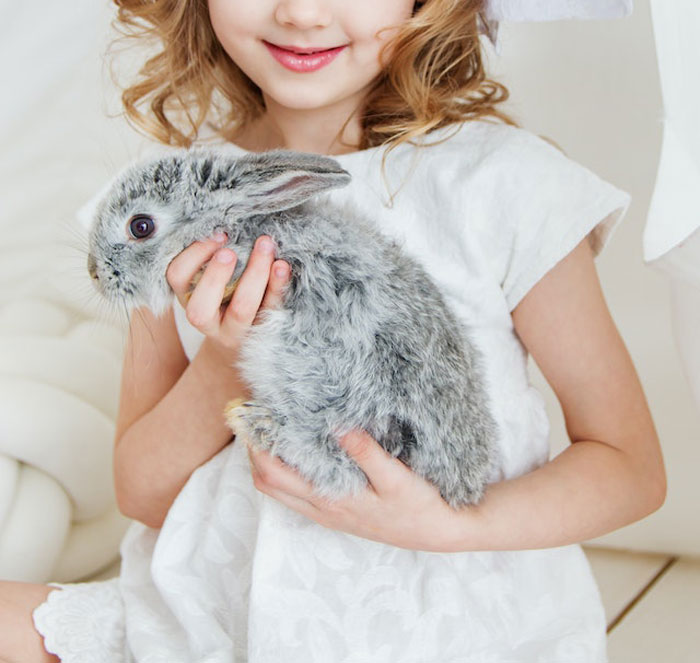
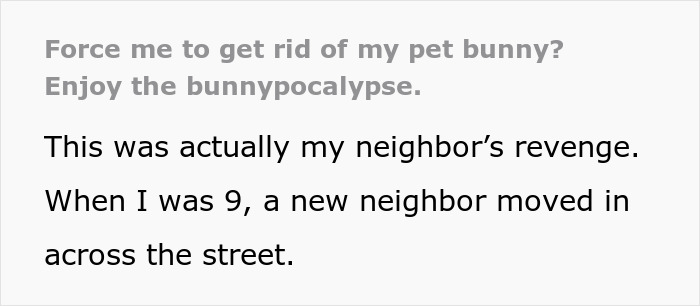
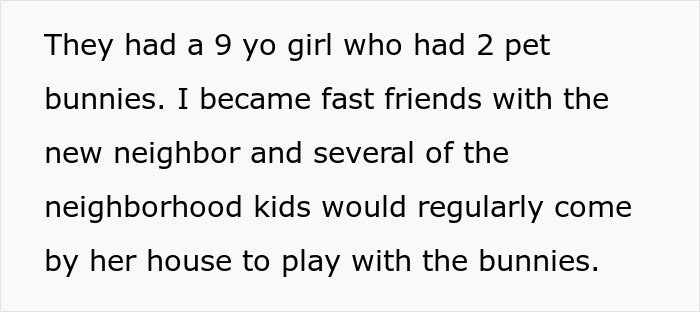

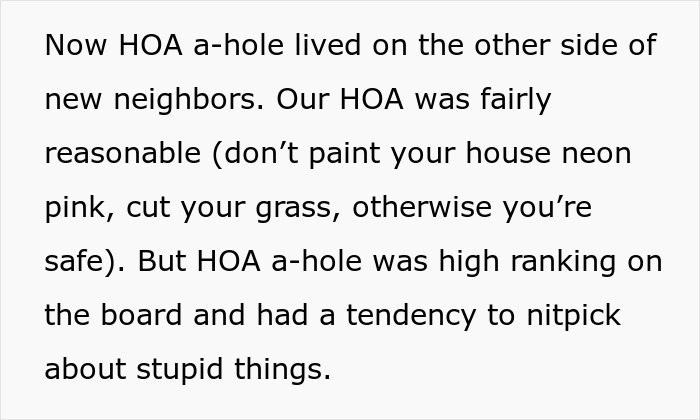









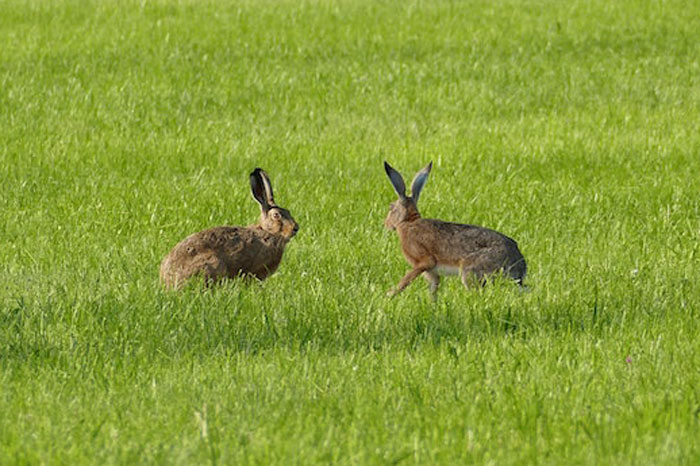

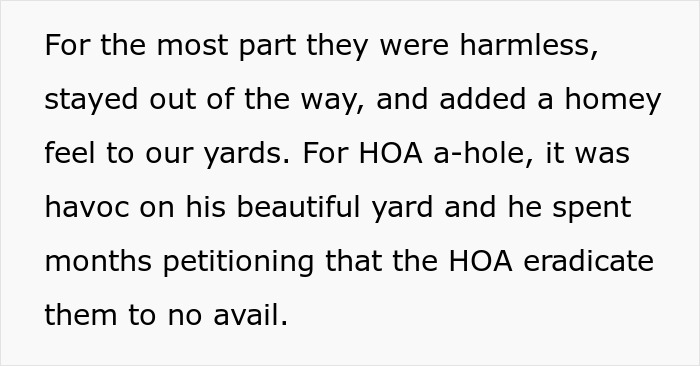
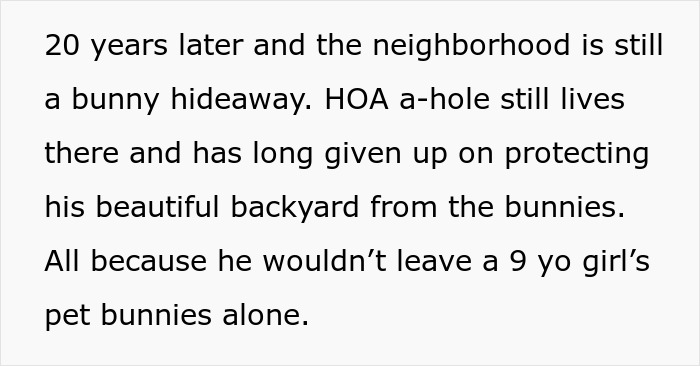
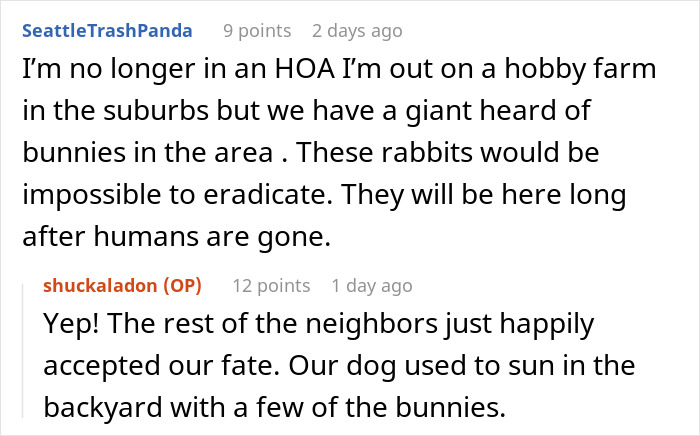
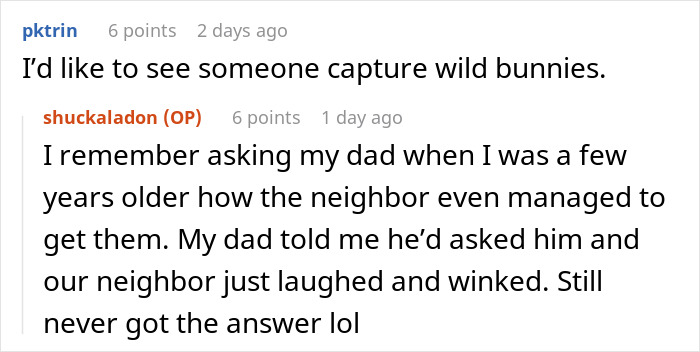

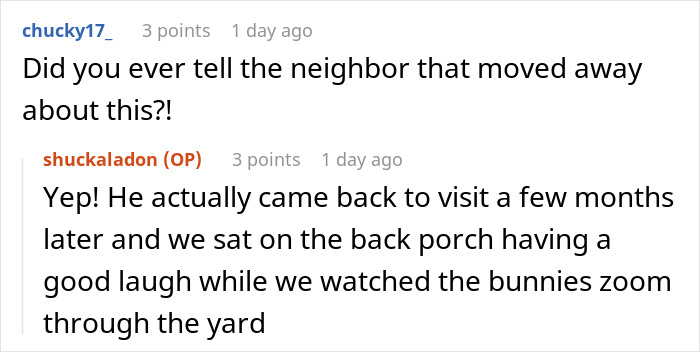
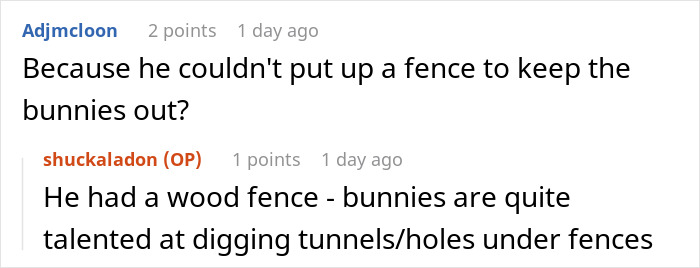
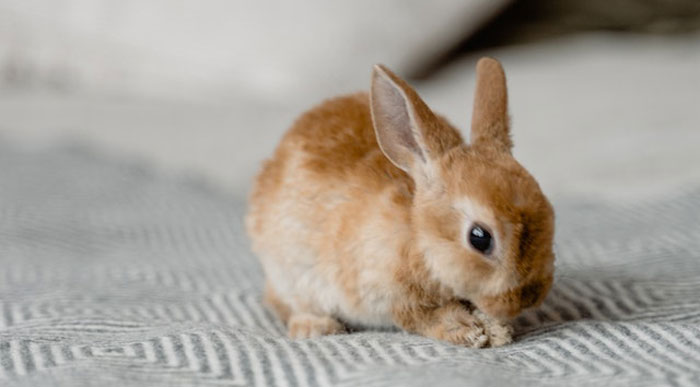
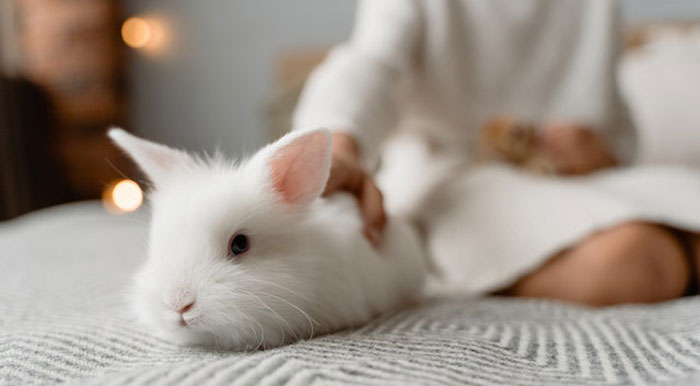
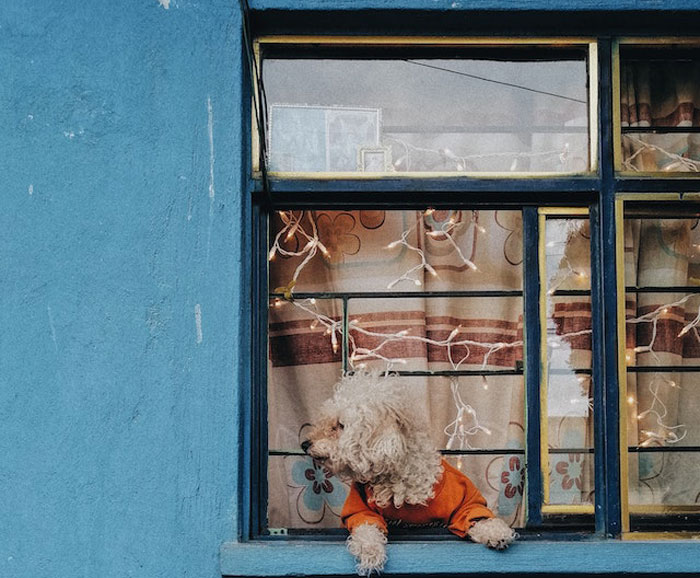


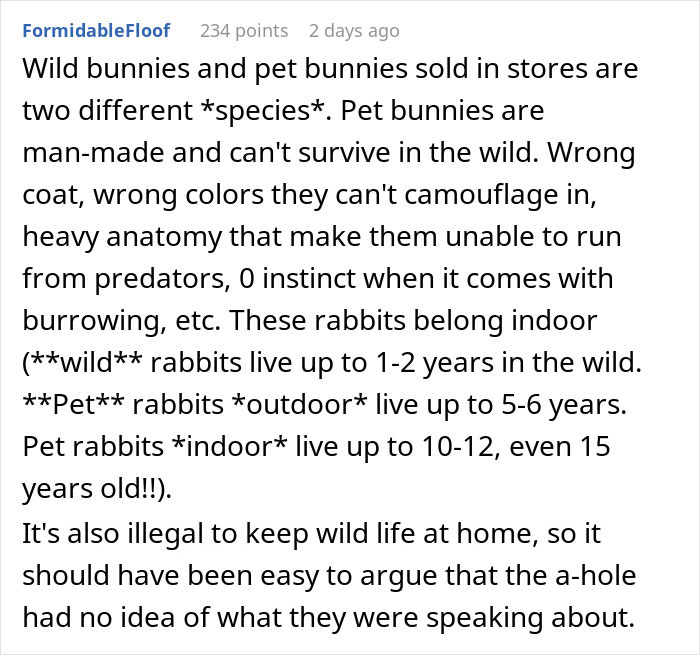















































134
45